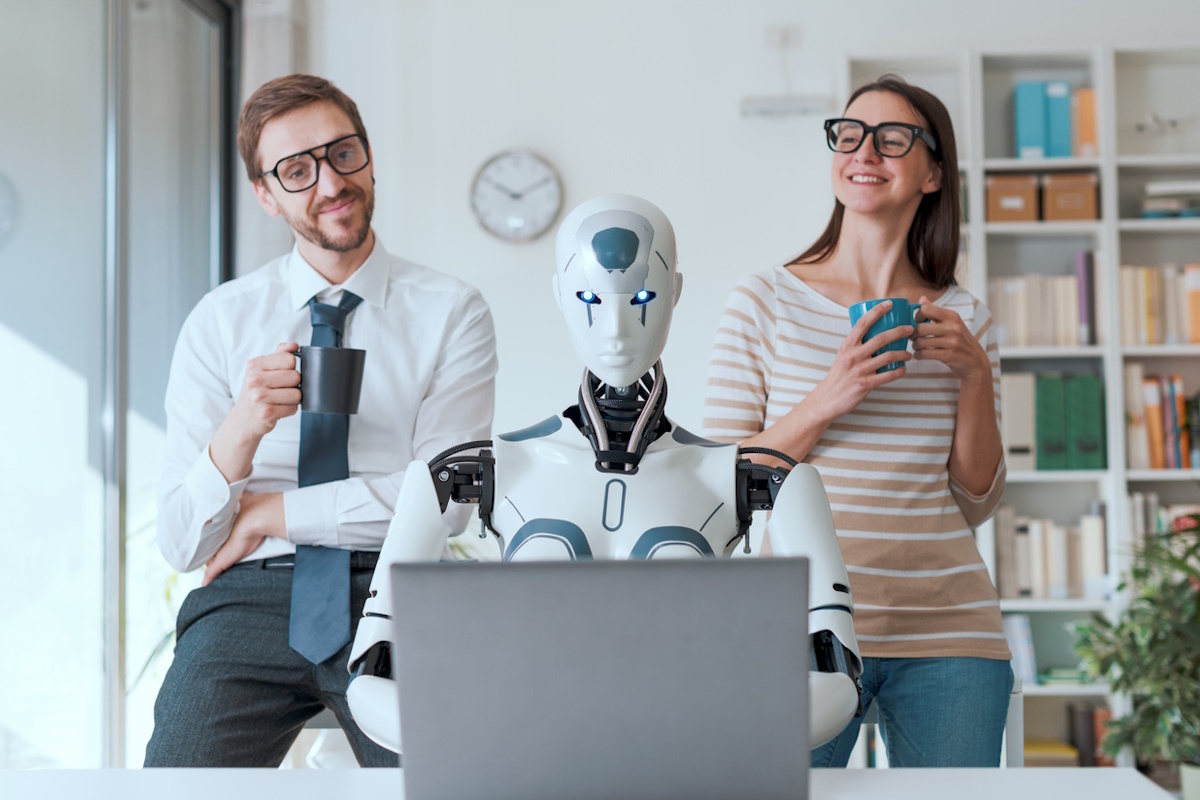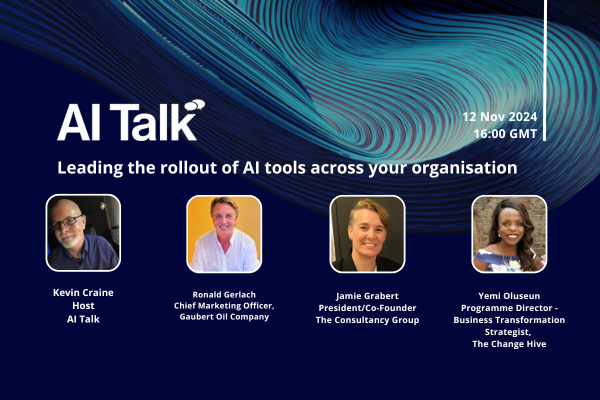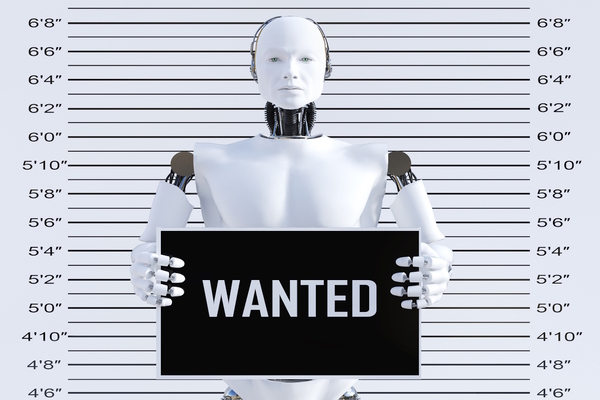Driving efficiency with AI

Yang Han at StackAdapt explains how to get your (operational) ducks in a row
Generative AI took the business world by storm in 2023, courtesy of headline-grabbing tools like ChatGPT and Bard. And as we kickstart the new year, all eyes are on this innovative space with one question on everyone’s lips: what’s next?
Many organisations are ahead of the curve and have adopted AI into their everyday operations. One-third of businesses use generative AI regularly “in at least one business function.” On top of this, 40% acknowledge they will increase investment in AI due to rapid advancements.
We don’t need to look into a crystal ball to predict how 2024 will unfold. These trends demonstrate that it’s the early adopters that fully embrace automation as a function will thrive and boost productivity in the workplace.
Household names have already jumped on the AI train in a bid to support their unique uptime requirements - from streamers like Netflix to social media icons such as Facebook. But AI’s selling points extend beyond improving reliability. Generative AI is proving to be a powerful asset in the pursuit of operational efficiency.
On top of this, we’re increasingly seeing generative AI transform HR and operational efficiency with the likes of Amazon leveraging HR for recruiting, as well as Deloitte rolling out an AI chatbot to its employees to help them carry out basic tasks more quickly.
It’s becoming evident that generative AI’s influence in 2024 is not just about speed but how it’s reshaping and optimising operations across sectors.
The three words businesses want to hear…
Efficiency, efficiency, efficiency.
But AI is only as efficient as the ones who use it; therefore, when responsibly using AI, with the correct training and knowledge, we need to continuously vet these tools for the right output. When approached conscientiously, it’ll be a useful tool in achieving business goals and fostering sustainable growth.
Eliminating legacy “process debt” and driving further optimisation will continue to be a priority for businesses in 2024. Accelerating growth will also be high on the to-do list, a factor dependent on leveraging AI via integration solutions to scale and streamline up-and-down-stream handoffs between business functions.
When used responsibly, AI has the case-in-point, Microsoft’s Moveworks conversational AI automates common enterprise tasks and workflows. Handling those processes autonomously, often without intervention from HR and IT, freeing up staff to focus on high-value, transformational work for enterprises.
Similarly, Deloitte’s recent roll-out of an AI-powered chatbot is a testament to the way organisations are headed in 2024 – fully embracing automation. From writing emails to creating project plans, these generative AI solutions empower businesses to work smarter, reduce manual inefficiencies, and streamline workflow for scale.
AI’s strengths don’t lie solely in handling mundane tasks. It’s also accelerating the way we approach data integrity and accelerate decision-making within an organisation.
Recently, PwC has given 4,000 of their staff access to an internal artificial intelligence platform to help lawyers with contract analysis, regulatory compliance work, due diligence and other legal advisory and consulting services.
AI algorithms’ ability to analyse vast datasets at speeds unattainable by human capabilities is also newsworthy. This accelerated data processing translates to quicker decision-making cycles. Businesses can respond promptly to market trends, identify emerging opportunities, and mitigate risks effectively.
Two is better than one
Partnerships will emerge in 2024 as the coveted key to unlocking AI’s full potential. OpenAI is at the forefront of this sector and has wasted no time in forging alliances.
Actively engaging with third-party application and service providers like Expedia, Shutterstock and Klarna has enabled OpenAI to strategically develop efficient processes for collaboration. The company is working with businesses that can integrate their technology to enhance services – recognising the pivotal role this plays in expanding their user base and achieving scalability.
Klarna’s recent application of AI to enhance human shopping experience demonstrates the creative capabilities of AI when it comes to partnerships. By partnering with OpenAI, Klarna offers a streamlined and personalised shopping experience to its customers, driving huge value for its teams and customers.
It’s time to knock down the walled gardens in 2024. Collaborations and partnerships that tap into established expertise will lead to rapid innovation.
Knowledge is porridge
In the era of generative AI, it’s a mammoth task for organisations to document and organise information that can be easily accessible to internal teams and customers without the right tools.
This is where the knowledge base proves to be pivotal in fostering collaboration, innovation and efficiency within organisations. These platforms serve as centralised repositories of information, housing a vast array of documentation, guidelines, policies and processes. In a technology-driven environment, where employees often grapple with the challenge of locating relevant information, these platforms provide a transformative solution.
Knowledge-based platforms revolutionise the way information is accessed. Instantly obtaining precise answers on a wide array of topics, from product specifics to HR procedures, drastically minimises the time invested in information searches. This doesn’t just elevate individual productivity; it fosters improved collaboration within teams.
The reduced dependence on inefficient communication channels enhances teamwork in an organisation. By enabling swift and direct access to crucial information, knowledge bases allow staff to make informed decisions and share insights.
Handle with care
As we move into 2024, we need to remember that AI is all about enhancing, not replacing, workforces. Humans will remain the key players in all of this, working alongside AI to make our lives easier, freeing up time for us to focus on impactful work. So contrary to concerns, it’s not about robots taking our jobs, it’s about enhancing our capabilities.
AI is only as good as the humans behind it. We need to use our common sense when assessing computer-generated outputs for accuracy and validity. Success lies in striking the right balance between AI’s efficiency and the uniquely human touch.
Yang Han is CTO at StackAdapt
Main image courtesy of iStockPhoto.com

Business Reporter Team
Most Viewed
Winston House, 3rd Floor, Units 306-309, 2-4 Dollis Park, London, N3 1HF
23-29 Hendon Lane, London, N3 1RT
020 8349 4363
© 2024, Lyonsdown Limited. Business Reporter® is a registered trademark of Lyonsdown Ltd. VAT registration number: 830519543





